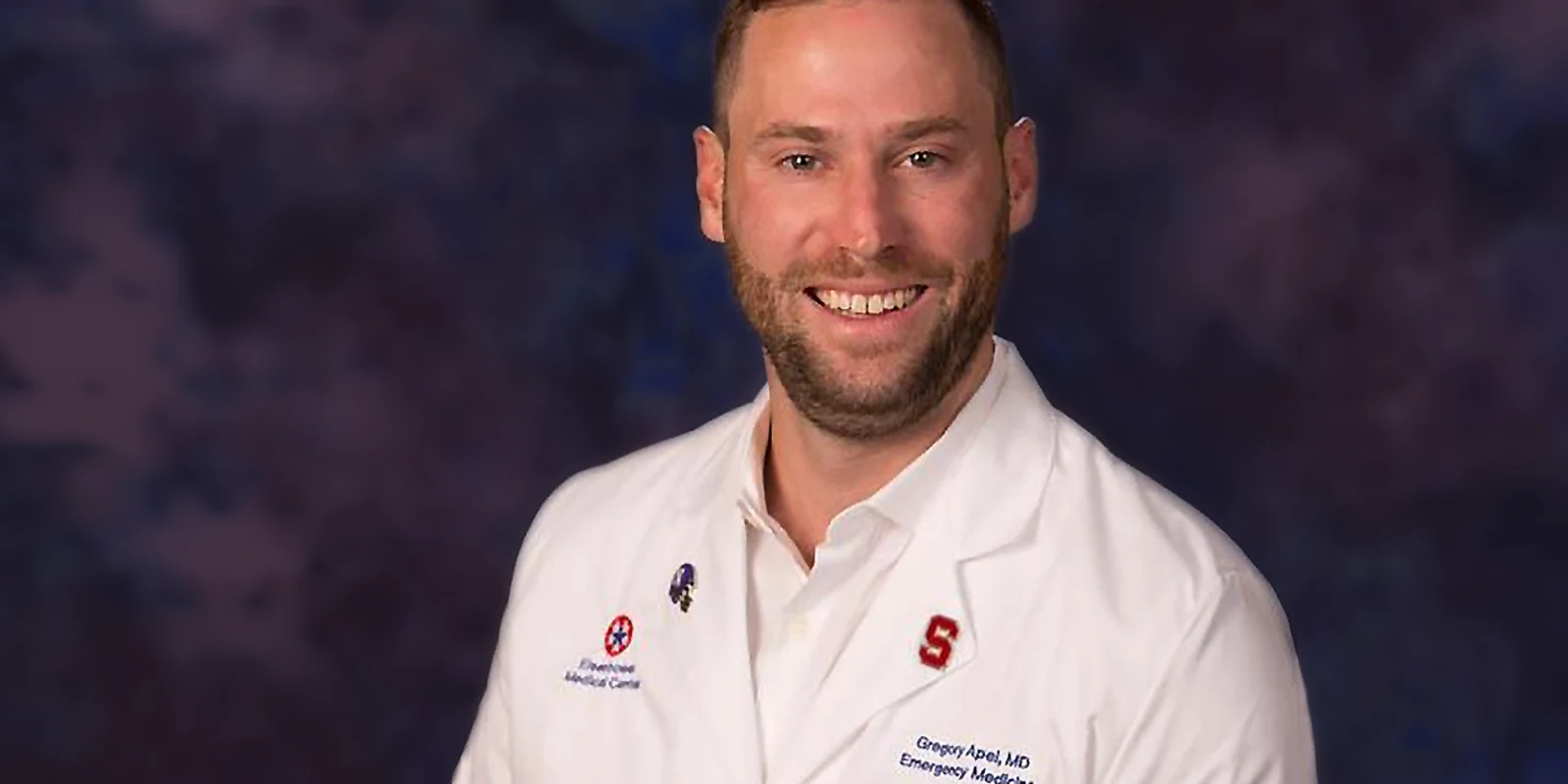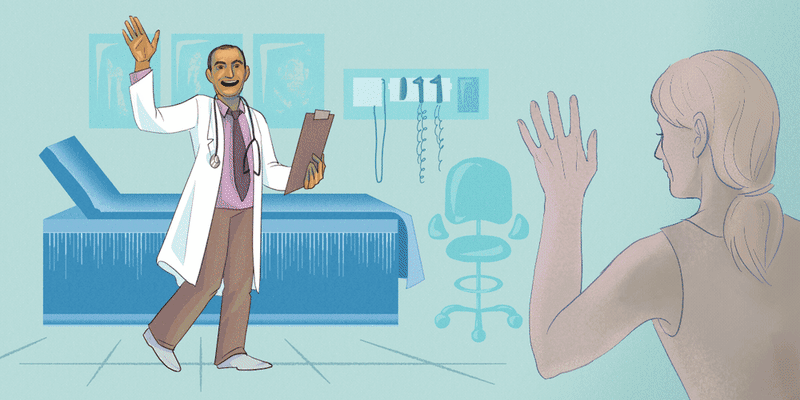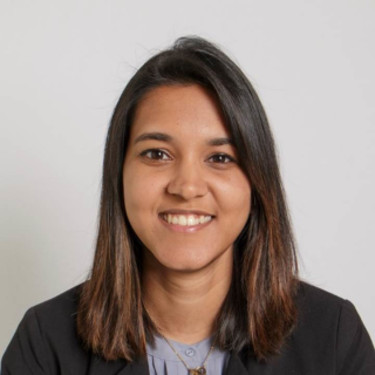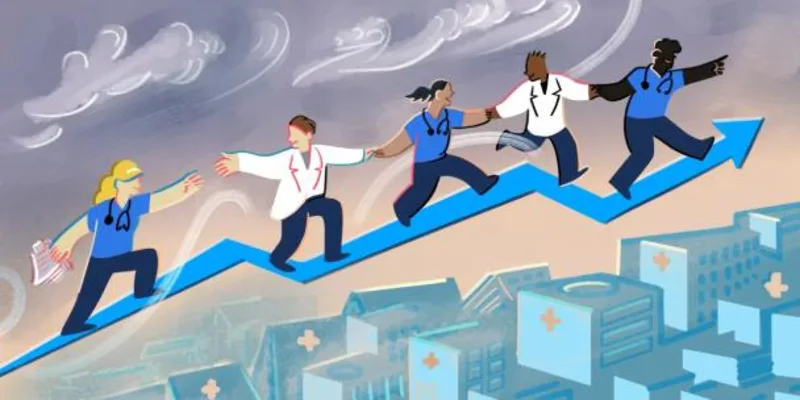
Name: Gregory Apel, MD
Specialty: Emergency Medicine
Education: University of Illinois College of Medicine
Areas of Expertise: Emergency Medicine
Current Position: Attending Staff Physician at Eisenhower Medical Center
1. Why did you choose emergency medicine?
From the moment I realized that a career in clinical medicine was the path for me, I considered the true definition of a physician as one who can save a life no matter the time, place, or reason. Emergency medicine satisfied that definition more than any other specialty. The veritable plethora of patient pathologies, presentations, and daily challenges makes the field both rewarding and fresh. The fact that I can walk into work every day and NOT know what the day will hold, while terrifying for some, wakes me up in the morning with a smile on my face.
2. What has been your most gratifying moment of being a clinician?
My first day as an attending physician. The culmination of nearly twelve years of schooling, training, residency. And then realizing that this is only the first day in a long career and that I should get my butt to work.
3. What area of emergency medicine is changing most rapidly?
Given the broad range of arenas under the auspices of emergency medicine, this is a tough question to answer, but I feel that the approach to sepsis is in constant flux, especially the initial resuscitation component. From CVP and ScvO2 being abandoned, to constant debates on appropriate fluid volumes, to timing of antibiotics, there is a monthly, well reviewed article that can and does change clinical practice.
4. What is the last journal article or piece of research that significantly changed your practice?
NEJM article in regard to antibiotic use in the setting of abscess, with subsequent further studies maintaining a positive clinical effect WITH antibiotic use. This goes against many years of teaching in regard to antibiotic use in the setting of abscess drainage, where only if there was a concurrent cellulitis or large rim of erythema were antibiotics recommended. Game changer.
5. What are your research interests?
My research interests focus on educational techniques, simulation development, and mentoring dynamics with both on shift teaching and overall resident and medical student evaluations. We are developing a novel system of real time (literally, during the shift) case-by-case evaluations and feedback which may change the way we consider prospective medical students.
6. What is a common misconception that other clinicians have about emergency medicine?
That we are simply putting the proverbial bandage on the problem and shipping it off to some other clinician of some other specialty to deal with it. While I would never pretend, or insinuate that I am the foremost expert in gastroenterology or neurology etc., we ARE experts in resuscitation, airway management, critical procedures, and any and all life-threatening presentations. I would trust nobody else with an actively dying, critically ill patient more than an ER physician, because when the proverbial poop hits the fan, there’s nobody else better suited to sort it out.
7. Who are your mentors?
Dr. Michael Gisondi, former residency director at Northwestern Memorial Hospital Emergency Medicine Program, and Dr. Euthym Kontaxis, medical director of Tennity Emergency Department at Eisenhower Medical Center. Big influencers in my life.
8. What’s the best advice you’ve ever received?
Embrace the unknown in an effort to challenge yourself and improve upon what you may think is already perfect. For in medicine and life, perfection is complacency, you can always ameliorate yourself, and in turn, augment the world around you.
9. Outside of your daily practice, do you have any personal or professional projects that you’re passionate about?
I am heavily involved with free open access medical education or FOAMed. Developing novel avenues to disseminate educational materials, from procedural videos to up-to-date primary literature reviews to web-based journal clubs, I have a keen interest in it all. We use this information as a model for resident and medical student education but at the hospital and online.
10. How do you unwind after a challenging day?
Coming home to my wonderful fiancé, and gorging on her delicious cooking while sitting out by the pool and enjoying a more than ample glass of scotch. Road trips to visit family, golfing, a good occasion cigar.
11. How do you motivate patients to do what’s best for their health?
I am extremely blunt, to the point, and real with my patients. There is no sugar coating, half truths, in my explanations, advice, or recommendations. If I have a patient in DKA because they decided to skip three doses of insulin and eat McDonalds, then they are going to get an earful from me, including the consequences of death and permanent morbidity. They have to be active in their own health care, in concert with my work and professional interventions.
12. What is the biggest challenge or obstacle in emergency medicine?
Collaboration with sub-specialists. Realizing when you’re not able to manage this patient fully, and truly making use of your colleagues. We are a team, and pushing that dynamic is of tantamount importance.
13. What are your favorite Doximity features and how have they helped your productivity (Dialer, DocNews, Career Navigator, e-Fax, etc.)?
Most assuredly DocNews. An invaluable resource to keep up to date with not only your specialty but the ground breaking practice updates and primary literature across all specialities. I view it daily, comment on it daily, and discuss with providers across the country about the merits, and shortcomings of the news.






